Want to know more about the Best Schools For Agricultural Sciences In the US and make an informed decision? Here is a good place to start.
If you’re a budding farmer, a green-thumbed enthusiast, or just someone with a passion for sustainable living, you might be wondering where to turn for the best education in agricultural science.
Fear not, for we’ve scoured the country to bring you the top schools for agricultural science in the US. So grab your overalls, hop on your tractor, and let’s dive in!
Please note that schools are selected based on our criteria (at the end of the article), ranked by the latest acceptance rate.
Table of Contents
#25. University of Kentucky

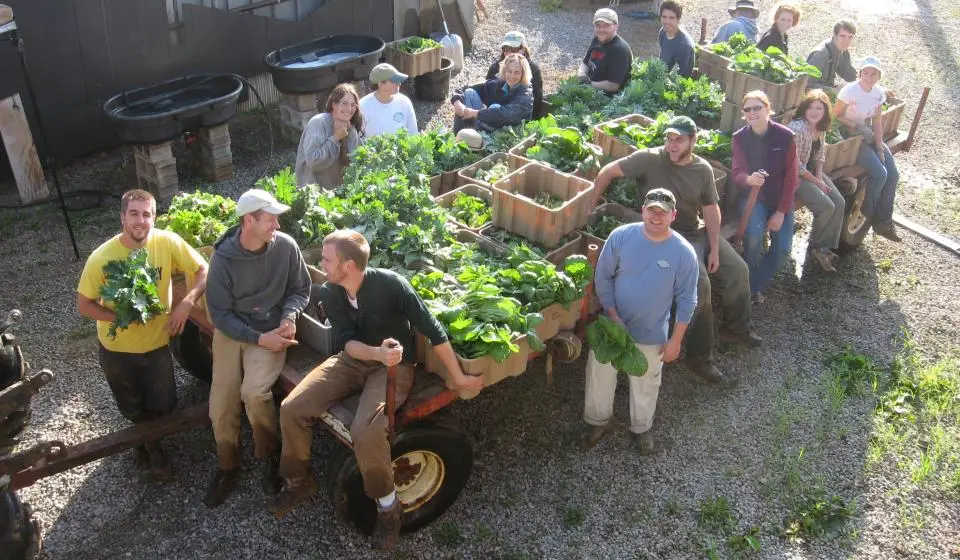
- Acceptance rate: 96%
- Average entry score: 1070-1320 SAT or 21-28 ACT
- Student-to-faculty ratio: 16 to 1
- Estimated cost of attendance (tuition and fees): $24,453-$45,530
- Average earning potential for graduates: $27,000 (College Simply)
With a focus on the economic, environmental, and social challenges confronting Kentucky’s citizens, faculty members at the University of Kentucky College of Agriculture provide students with a foundation in science and technology.
Students who pursue degrees in agriculture at the UK are prepared for careers in agriculture, food, and natural resources. They gain knowledge and skills that will enable them to be leaders in the field of agriculture.
#24. Iowa State University


- Acceptance rate: 89%
- Average entry score: 1010-1310 SAT or 21-28 ACT
- Student-to-faculty ratio: 19 to 1
- Estimated cost of attendance (tuition and fees): $21,940-37,128
- Average earning potential for graduates: $46,032 (College Factual)
As agriculture is the engine that drives the world’s economy, Iowa State University is at the forefront of developing innovative technologies to help farmers produce more food, feed, fiber, and fuel with fewer resources.
The College of Agriculture and Life Sciences is home to faculty who are leaders in their fields.
Students learn from these experts in the classroom and through research projects. From day one, students immerse themselves in a wide range of disciplines that prepare them for careers in agriculture, food production, environmental resources, and sciences.
#23. University of Arizona
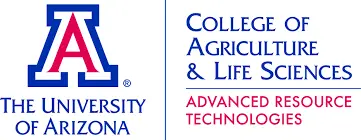
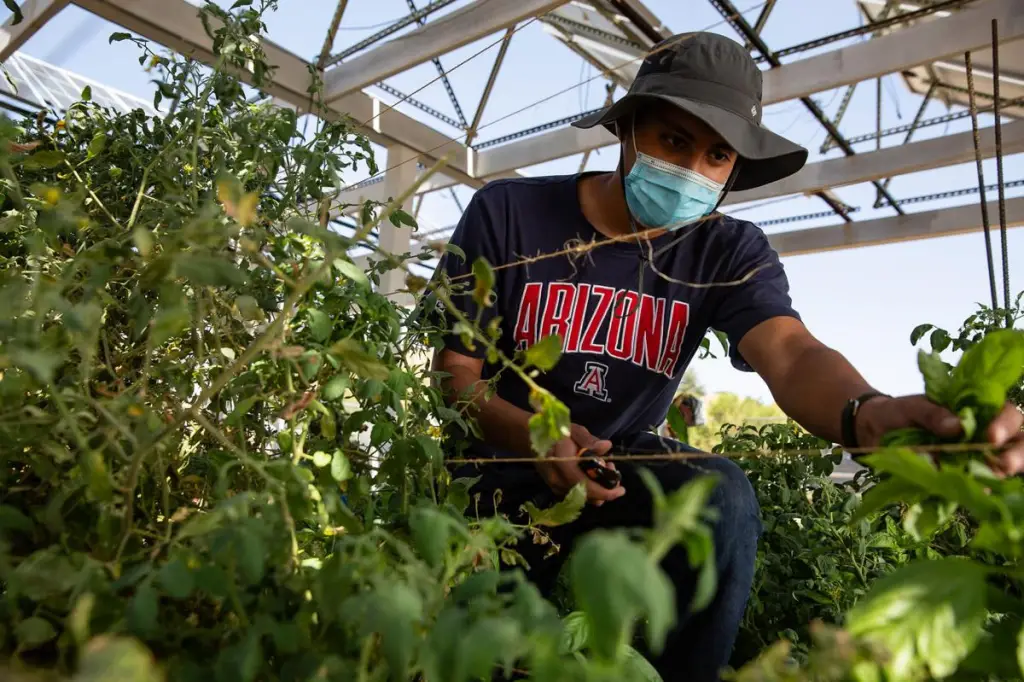
- Acceptance rate: 85%
- Average entry score: 1120-1370 SAT or 21-29 ACT
- Student-to-faculty ratio: 17 to 1
- Estimated cost of attendance (tuition and fees): $30,416-$50,000
- Average earning potential for graduates: $42,424 (College Factual)
The College of Agriculture and Life Sciences at the University of Arizona is an innovative leader in research, education, outreach, and technological advancement.
The college has a long history of agricultural innovation, and its faculty members are known for their research on everything from pest management to plant genetics.
Both undergraduate and graduate programs at UA are designed to give aspiring farmers the skills they need to succeed in a rapidly changing industry.
#22. Colorado State University
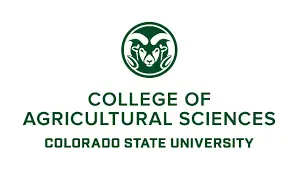
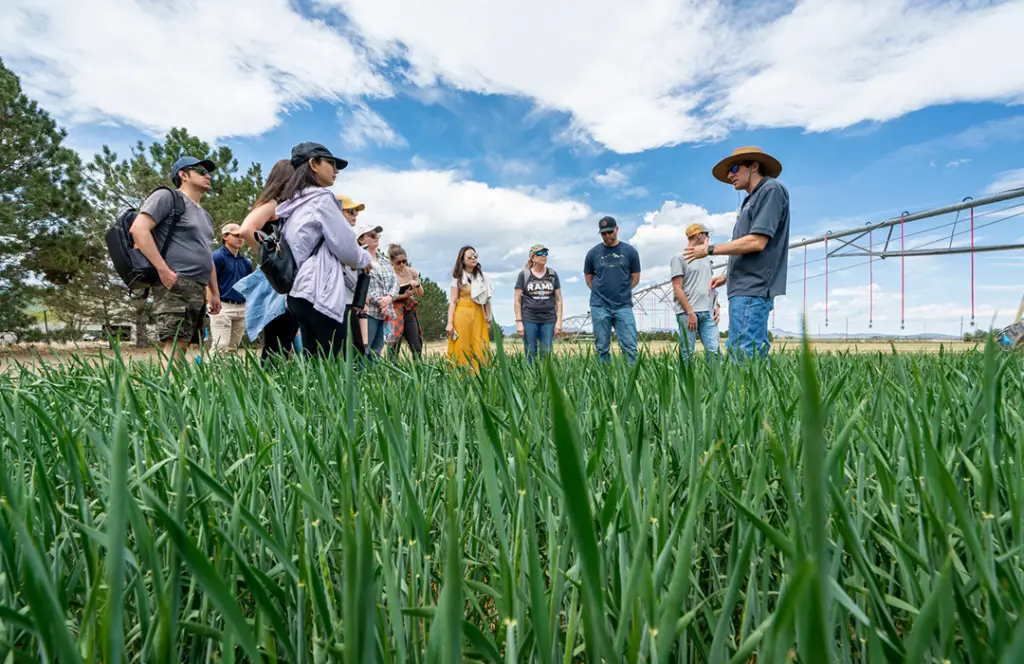
- Acceptance rate: 84%
- Average entry score: 1175 SAT or 26 ACT
- Student-to-faculty ratio: 17 to 1
- Estimated cost of attendance (tuition and fees): $29,109-$48,389
- Average earning potential for graduates: $44,300 (College Simply)
Colorado State University incorporates different modes of teaching to make students not only learn but also experience what it’s like to be a scientist. With modern and well-equipped laboratories, the university aims to produce truly ready students for the real world.
One thing that makes this school stand out is its high-quality faculty. They are some of the best in their fields and have years of experience working in research labs.
Their programs are also very competitive. Students must pass a rigorous application process to be accepted into the university, which only makes them more prepared for their careers. They also have excellent facilities that help students become well-rounded researchers and scientists.
Similar articles like this:
- 25 Best Forestry Schools In The US
- 25 Best Schools For Environmental Science In The US
- 25 Best Schools For Health Sciences Degrees In The US
#21. Michigan State University
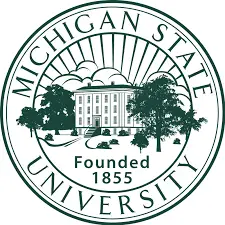

- Acceptance rate: 83.3%
- Average entry score: 1100-1320 SAT or 23-29 ACT
- Student-to-faculty ratio: 16 to 1
- Estimated cost of attendance (tuition and fees): $29,184-$54,490
- Average earning potential for graduates: $48,126 (College Factual)
Study agriculture under the guidance of knowledgeable MSU faculty who study, teach, and research agriculture. This university has a reputation for excellence and innovation in agricultural education, research, and outreach.
Students can earn an undergraduate degree in agriculture or choose from a variety of minors that complement their primary area of study.
MSU’s efforts to provide students with a well-rounded education are reflected in the many opportunities they offer. Students can study abroad, gain real-world experience through internships and research projects, or participate in student organizations.
#20. University of Arkansas, Fayetteville


- Acceptance rate: 83%
- Average entry score: 1059-1220 SAT or 21-28 ACT
- Student-to-faculty ratio: 20 to 1
- Estimated cost of attendance (tuition and fees): $17,850-$38,541
- Average earning potential for graduates: $40,100 (College Simply)
The University of Arkansas, Fayetteville’s Division of Agriculture, is home to one of the nation’s top agriculture programs. This Division conducts research and offers educational programs in areas including animal sciences, agribusiness management, and more.
Experienced faculty teach courses at both the undergraduate and graduate levels. Students have opportunities for internships, research participation, and international study abroad programs. The Division also houses facilities that serve the research, teaching, and extension needs of the state.
#19. University of Missouri, Columbia

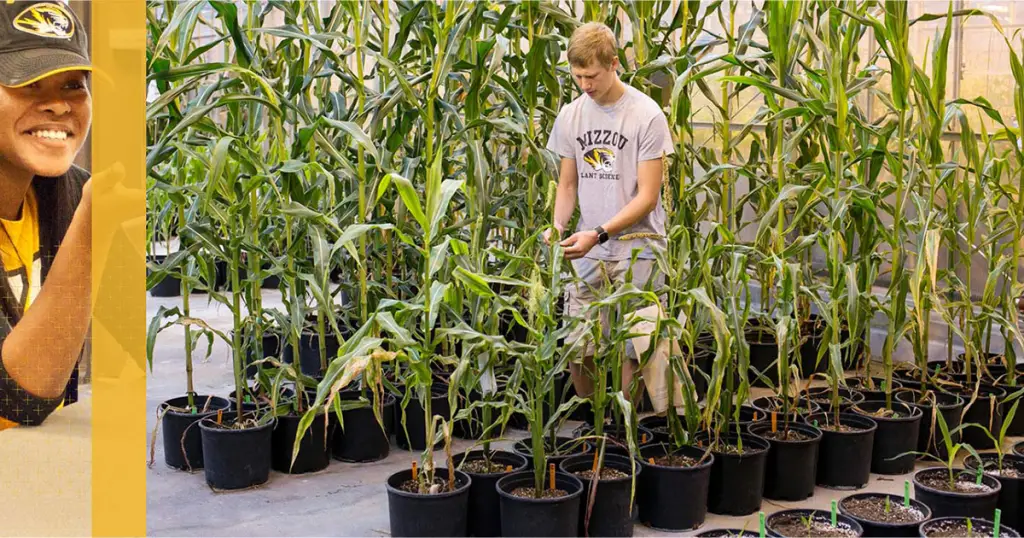
- Acceptance rate: 82%
- Average entry score: 1160 SAT or 24 ACT
- Student-to-faculty ratio: 18 to 1
- Estimated cost of attendance
- (tuition and fees): $29, 168-$48,143
- Average earning potential for graduates: $32,800 (College Simply)
Agriculture students at the University of Missouri have the unique opportunity to work with farmers, ranchers, and other agricultural stakeholders from within the state. They enjoy the opportunity to learn, grow and develop a strong foundation for their careers.
With a degree in agriculture, students can expect to be prepared for a variety of careers. Graduates have gone on to work in the fields of education, agribusiness, sales and marketing, insurance, plant pathology, crop production management, and more.
#18. Washington State University

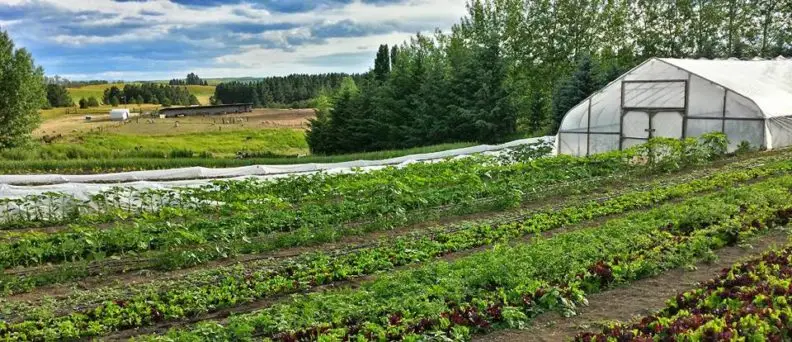
- Acceptance rate: 80%
- Average entry score: 1020-1240 SAT or 18-25 ACT
- Student-to-faculty ratio: 15 to 1
- Estimated cost of attendance (tuition and fees): $28,669-$43,985
- Average earning potential for graduates: $41,100 (College Simply)
WSU offers undergraduate and graduate agricultural science degree programs. These programs give students the opportunity to develop skills that will be useful in many fields.
You will learn about the science behind agriculture as well as its business side. WSU has one of the state’s largest and most diverse student bodies. You will have plenty of opportunities to make new friends and find your niche within this community.
Future agricultural scientists will have the opportunity to work with WSU’s experts in plant science, animal science, and horticulture. You will also be able to interact with faculty members who are experts in these fields.
This way, you will be able to get a firsthand view of the future of agriculture. This program is perfect for students who want to work in agriculture and make an impact on our planet.
Similar articles like this:
- 25 Best Immunology Schools In The US
- 25 Best Microbiology Schools In The US
- 25 Best Education Schools In The US
#17. University of Nebraska, Lincoln


- Acceptance rate: 78%
- Average entry score: 1215 SAT or 25 ACT
- Student-to-faculty ratio: 16 to 1
- Estimated cost of attendance (tuition and fees): $26,252-$43,382
- Average earning potential for graduates: $42,600 (College Simply)
The University of Nebraska is another excellent choice for students who want to pursue a degree in agricultural science. This public university has a long history of producing some of the best agricultural scientists in the world.
Agriculture students take advantage of the university’s excellent facilities and resources, including some of the world’s best agricultural research labs. Students have access to cutting-edge technology that helps them develop their skills and become well-rounded scientists.
They can also benefit from the expertise of top researchers who specialize in various fields of agricultural science.
#16. University of Minnesota, Twin Cities


- Acceptance rate: 70%
- Average entry score: 1330-1500 SAT or 27-32 ACT
- Student-to-faculty ratio: 17 to 1
- Estimated cost of attendance (tuition and fees): $23,110-$52,088
- Average earning potential for graduates: $60,600 (College Simply)
While the advanced degree in applied plant science at the University of Minnesota focuses on human health and nutrition, it also has a strong focus on agriculture. This program allows students to study plant science through the lens of human needs and how that affects agriculture.
Other agricultural sciences programs are majorly undergraduate programs that students can complete in four years. These programs are ideal for people who want to work in agriculture but don’t have any experience already.
The agricultural sciences are a broad field that encompasses different majors. Students can major in entomology, horticulture, animal science, and many more.
#15. University of Massachusetts, Amherst

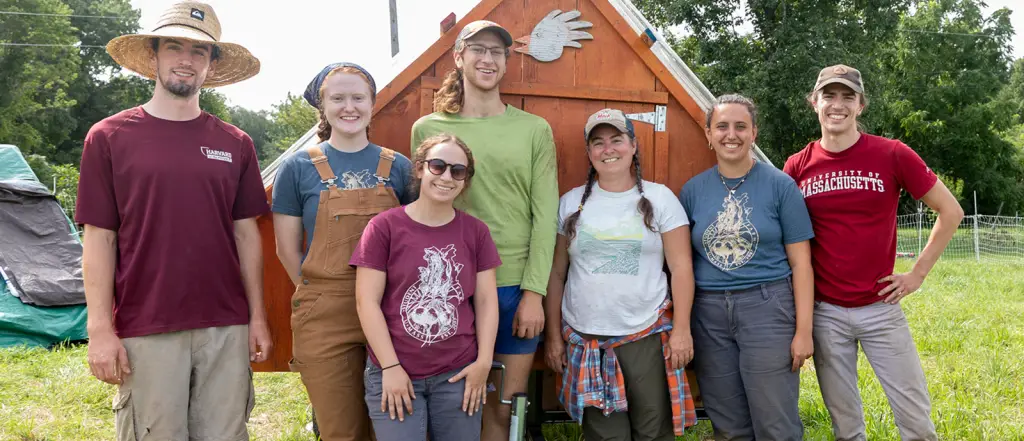
- Acceptance rate: 65%
- Average entry score: 1190-1390 SAT or 28-33 ACT
- Student-to-faculty ratio: 18 to 1
- Estimated cost of attendance (tuition and fees): $33,056-$53,581
- Average earning potential for graduates: $21,022 (College Factual)
The Stockbridge School of Agriculture is a division of the University of Massachusetts Amherst. It has a well-deserved reputation for its excellence in agricultural education and research.
This school offers associate’s, undergraduate, and graduate degrees in agricultural sciences, focusing on sustainable agriculture and environmental issues.
Busy professionals can also find the flexibility to complete their degrees through an online program. Stockbridge School of Agriculture trains students for careers in the food and agricultural industries.
#14. Texas A&M University College Station


- Acceptance rate: 63%
- Average entry score: 1160-1390 SAT or 25-31 ACT
- Student-to-faculty ratio: 21 to 1
- Estimated cost of attendance (tuition and fees): $30,608-$58,976
- Average earning potential for graduates: $47,056 (College Factual)
Agriculture students at Texas A&M University have many opportunities to learn from top-notch professors and get hands-on experience with their research projects.
The variety in the course offerings makes the program very flexible. Students can tailor their degrees to their career goals, whether they want to work in the field or go into research.
This institution produces many graduates who go on to work in agribusiness, government, and non-governmental organizations. The biggest benefit of this program is its focus on the future of agriculture. Students can learn from professors actively working in their fields, which leads them to be at the forefront of innovation.
Similar articles like this:
- 25 Best Material Science Schools In The US
- 25 Best Schools For Math In The US
- 25 Best Medical Schools In The US
#13. University of Wisconsin, Madison


- Acceptance rate: 60%
- Average entry score: 1300-1480 SAT or 28-32 ACT
- Student-to-faculty ratio: 18 to 1
- Estimated cost of attendance (tuition and fees): $27,484-$55,372
- Average earning potential for graduates: $37,300 (College Simply)
UW-Madison provides a blend of academic and experiential learning through its College of Agricultural and Life Sciences. Students can choose from a variety of majors, including animal science, crop production, horticulture, plant pathology, soil science, and more.
These areas of study are designed to provide students with a strong foundation in the fundamentals of agriculture, along with hands-on experience. The college also offers unique opportunities for undergraduates to participate in research projects with faculty members from different departments.
#12. University of Illinois at Urbana-Champaign

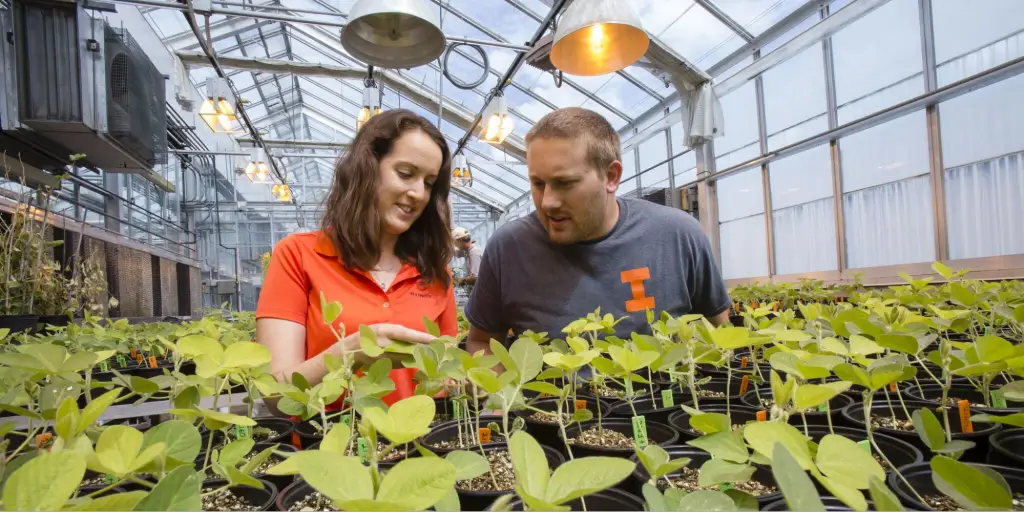
- Acceptance rate: 59%
- Average entry score: 1210-1470 SAT or 27-33 ACT
- Student-to-faculty ratio: 21 to 1
- Estimated cost of attendance (tuition and fees): $33,060-$50,510
- Average earning potential for graduates: $49,711 (College Factual)
UIUC, through its College of Agricultural, Consumer, and Environmental Sciences (ACES), is recognized as a national leader in the field of agricultural education.
The school provides students with a broad-based education to prepare them for careers in agriculture, natural resources management, and related fields.
At the heart of the program is an emphasis on sustainability. Students learn how to use organic and sustainable practices in their farming operations while also developing the business skills needed to operate successful farms.
Graduates are prepared to enter a variety of careers, including production agriculture, agribusiness, and natural resources management.
#11. Ohio State University

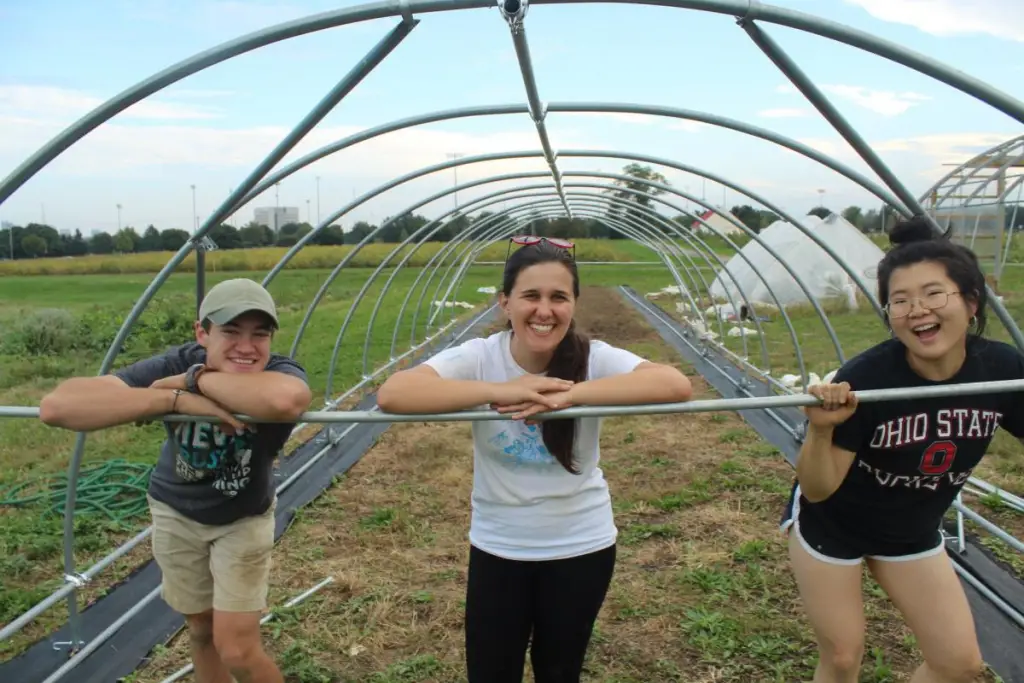
- Acceptance rate: 57.2%
- Average entry score: 1210-1430 SAT or 26-32 ACT
- Student-to-faculty ratio: 18 to 1
- Estimated cost of attendance (tuition and fees): $29,368-$52,451
- Average earning potential for graduates: $46,899 (College Factual)
OSU brings together the best of agriculture, industry, and research. The College of Food, Agricultural, and Environmental Sciences (CFAES) is one of the largest colleges on campus, with dedicated faculty and staff members.
They provide world-class education, cutting-edge research, and innovative solutions that help ensure Ohio’s agricultural economy continues to thrive.
Once you’re at OSU, you will be provided opportunities to explore the different areas of study within CFAES. You can choose from a wide range of majors and minors to build your knowledge and skills in the areas of food science, agricultural business, and agricultural communications.
#10. Purdue University, West Lafayette


- Acceptance rate: 57%
- Average entry score: 1267 SAT
- Student-to-faculty ratio: 14 to 1
- Estimated cost of attendance (tuition and fees): $24,390-$50,000
- Average earning potential for graduates: $49,055 (Purdue)
Purdue’s College of Agriculture strives to produce the next generation of innovators, leaders, and stewards in agriculture. The college trains students in agriculture’s latest technologies, research, and practices.
Agribusiness, agronomy, and agricultural economics make up the majority of the college’s programs, but students can also find majors in animal science, natural resources, and environmental sciences. With so many options, it’s easy for students to find a program that interests them.
The College of Agriculture also offers numerous undergraduate research opportunities and internships in agriculture-related fields.
Similar articles like this:
- 25 Best Multidisciplinary Schools In The US
- 25 Best Gerontology Schools In The US
- 25 Best Nursing Schools In The US
#9. University of Georgia

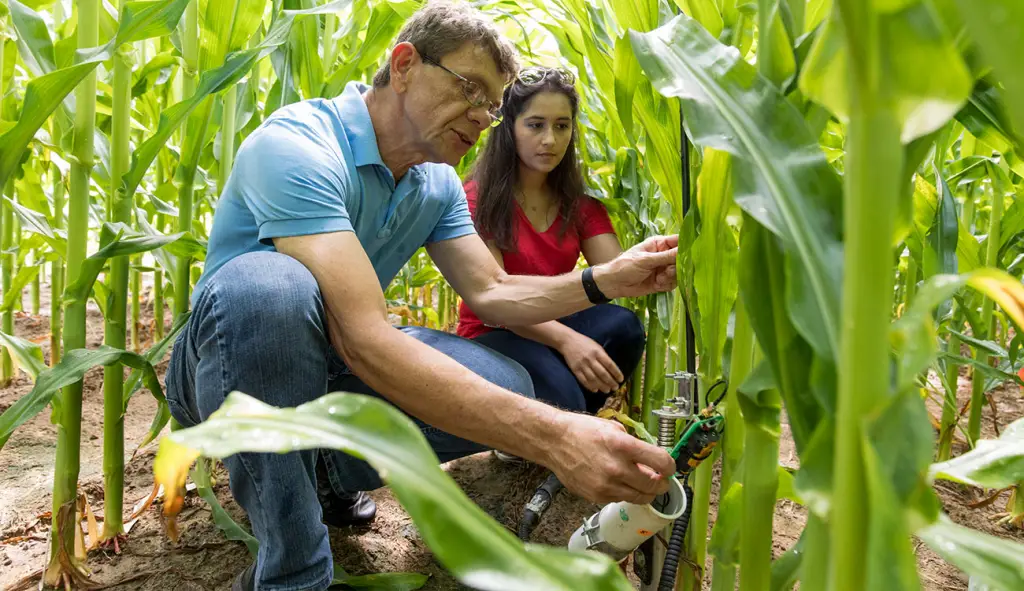
- Acceptance rate: 55%
- Average entry score: 1270-1450 SAT or 29-33 ACT
- Student-to-faculty ratio: 17 to 1
- Estimated cost of attendance (tuition and fees): $27,958-$46,998
- Average earning potential for graduates: $59,600 (College Simply)
The University of Georgia fosters an atmosphere that encourages students to develop their talents and become well-rounded scientists. Experienced faculty, advanced equipment and facilities, and a supportive community make UGA an excellent choice for students who want to pursue a degree in agricultural science.
UGA’s agriculture graduates have gone on to become successful scientists and researchers in a wide range of fields, including plant science, animal science, food science, and agriculture economics. They work in government agencies, private companies, and nonprofit organizations.
#8. University of California, Davis

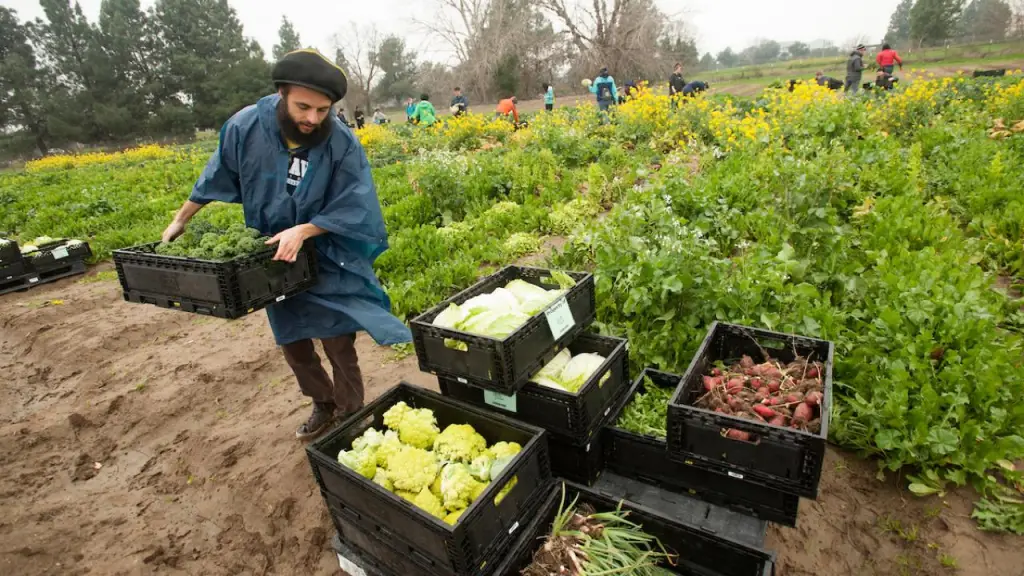
- Acceptance rate: 46%
- Average entry score: 1160-1400 SAT
- Student-to-faculty ratio: 21 to 1
- Estimated cost of attendance (tuition and fees): $37,122-$66,876
- Average earning potential for graduates: $21,510 (Grad Reports)
UC Davis’s College of Agricultural and Environmental Sciences takes center stage in the university’s mission to promote knowledge, discovery, and solutions for a more sustainable world. The college offers undergraduate degrees in agriculture and environment, animal science, plant biology, and crop science.
UC Davis also has graduate programs for those interested in studying agriculture or related fields. These courses prepare students to work in research, teaching, and industry.
Students have the opportunity to work with faculty on real-world projects, which can lead to an internship or job. The college also offers a wide range of scholarships for students who qualify.
What’s it like to study at UC Davis?
#7. University of Florida


- Acceptance rate: 42%
- Average entry score: 1300-1470 SAT or 29-33 ACT
- Student-to-faculty ratio: 18 to 1
- Estimated cost of attendance (tuition and fees): $21,430-$43,708
- Average earning potential for graduates: $42,700 (College Simply)
UF’s College of Agriculture and Life Sciences incorporates engineering and technology into its curriculum to prepare students for careers in the world of agriculture. The college has made strides to ensure that students are well-prepared for the workforce by providing relevant training and education.
Students have access to state-of-the-art equipment and facilities, which are continually upgraded. With numerous undergraduate majors, future agriculture scientists have the opportunity to tailor their education to fit their specific interests.
Many courses incorporate hands-on learning opportunities to prepare students for careers or further education after graduation.
What’s it like to study at the University of Florida?
#6. University of Maryland College Park


- Acceptance rate: 40%
- Average entry score: 1280-1470 SAT or 30-34 ACT
- Student-to-faculty ratio: 18 to 1
- Estimated cost of attendance (tuition and fees): $10,955-$50,000
- Average earning potential for graduates: $59,940 (Grad Reports)
Acquire a degree in agriculture at the University of Maryland, and you’ll become part of a rich academic tradition that dates back to the 1850s. The College Park campus is home to world-class faculty, state-of-the-art facilities, and a community of students who are passionate about their work.
Experienced educators will guide you through your curriculum. You’ll learn from a diverse student body while networking with professionals in your field through various clubs and organizations. From the moment you walk through the doors of Maryland’s College Park campus, you’ll have access to all this university offers.
At the end of your time here, you’ll have the skills and knowledge to take on the world. Many of which will be gained from hands-on experience in your field. Your professors will be there to guide you along the way.
What’s it like to study at the University of Maryland, College Park?
Similar articles like this:
- 25 Best Schools For Neuroscience In The US
- 25 Best Pharmaceutical Sciences Schools In The US
- 25 Best Astronomy Schools In The US
#5. Cornell University

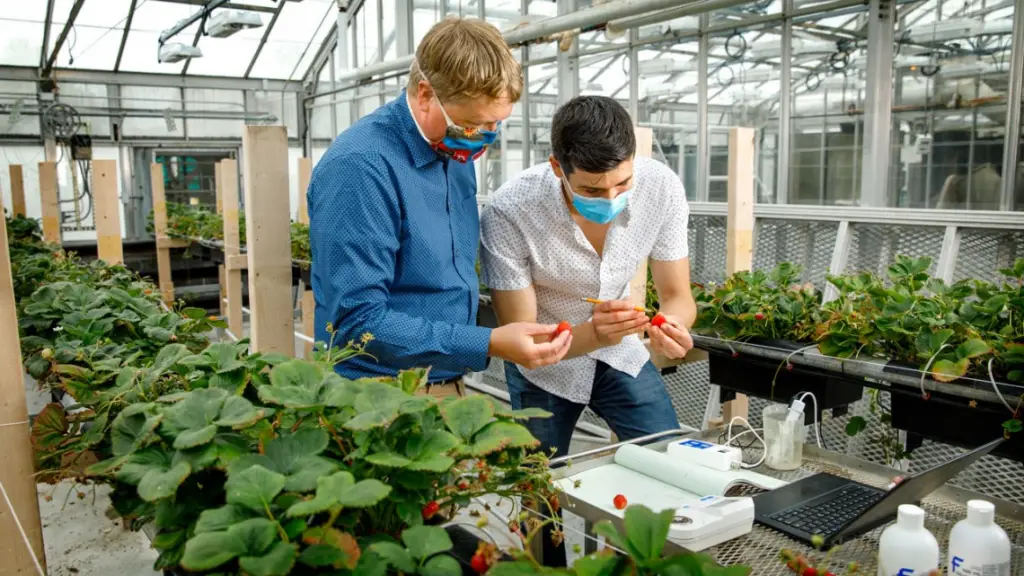
- Acceptance rate: 22.6%
- Average entry score: 1450-1560 SAT or 33-35 ACT
- Student-to-faculty ratio: 9 to 1
- Estimated cost of attendance (tuition and fees): $78,992
- Average earning potential for graduates: $42,682 (College Factual)
As agriculture becomes more sophisticated and complex, especially in the areas of technology and sustainability, it is vital that students have access to high-quality education. This is why Cornell University’s College of Agriculture and Life Sciences offers one of the best agriculture programs in the country.
The college has undergraduate degrees, graduate degrees, and postdoctoral research opportunities for students interested in agriculture or related fields.
With the unique subject concentrations, students can find a path that suits them best. For example, students can choose from concentrations in animal sciences, plant sciences, and human nutrition.
What’s it like to study at Cornell University?
#4. University of California, Berkeley

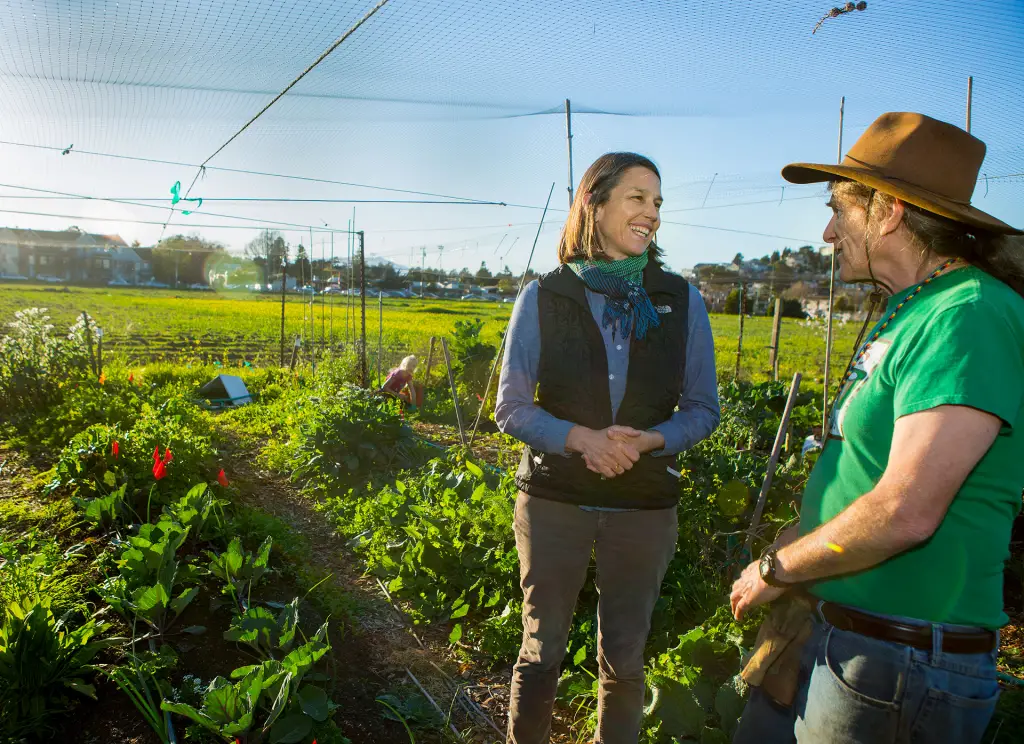
- Acceptance rate: 17.5%
- Average entry score: 1415 SAT
- Student-to-faculty ratio: 17 to 1
- Estimated cost of attendance (tuition and fees): $41,878-$71,632
- Average earning potential for graduates: $45,577 (Glassdoor)
UC Berkeley boasts a unique program that explores the intersections of food security, environmental health, and social justice. The program is designed for students who are interested in the impacts of food systems on public health and the environment.
Students take classes that explore new opportunities for sustainable agriculture, urban farming, and community-based food security projects.
The school offers undergraduate and graduate degrees. Students are given a foundation in the interdisciplinary nature of food systems, with courses covering topics such as food history and culture, agriculture, and nutrition science.
What’s it like to study at UC Berkeley?
#3. Tufts University


- Acceptance rate: 14%
- Average entry score: 1440-1550 SAT or 33-35 ACT
- Student-to-faculty ratio: 9 to 1
- Estimated cost of attendance (tuition and fees): $81,700
- Average earning potential for graduates: $30,770 (Grad Reports)
Tufts Division of Agriculture, Food, and Environment is a center of innovation and research where faculty and students collaborate to solve real-world problems. It is committed to education that transforms lives, addressing global challenges through innovative research, teaching, and outreach.
Agricultural programs provide students with a solid foundation in the biological, environmental, and economic aspects of agriculture. Coupled with understanding the social and political factors that influence agricultural systems, students are well-prepared to pursue careers in a wide range of fields.
What’s it like to study at Tufts University?
#2. Johns Hopkins University


- Acceptance rate: 12%
- Average entry score: 1510-1570 SAT or 34-35 ACT
- Student-to-faculty ratio: 7 to 1
- Estimated cost of attendance (tuition and fees): $78,657
- Average earning potential for graduates: $30,500 (College Simply)
Food security is a problem facing the world today. The United Nations estimates that more than eight hundred million people are undernourished. In the developing world, one in three people does not have enough food to lead a healthy and active life.
As a result, Johns Hopkins University (JHU) is focusing on addressing this problem and promoting international food security. Their agriculture programs bring together faculty from across the university to create an interdisciplinary community of experts.
Food security regulation students, for instance, explore a wide range of topics in their courses. These include agrarian studies, urban agriculture, food systems, and environmental health. Students gain a variety of skills and knowledge to help them succeed in this growing field.
The Master’s program is designed for students who have already earned a degree in another discipline or are currently working in other fields related to food security regulation.
What’s it like to study at Johns Hopkins University?
#1. Harvard University

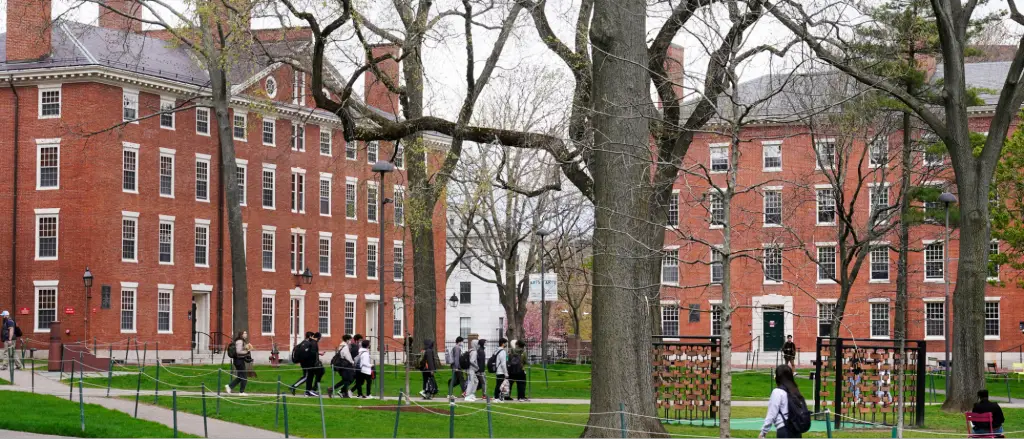
- Acceptance rate: 3.2%
- Average entry score: 1460-1580 SAT or 33-35 ACT
- Student-to-faculty ratio: 7 to 1
- Estimated cost of attendance (tuition and fees): $76,963
- Average earning potential for graduates: $33,180 (Grad Reports)
Harvard University offers students an unparalleled education with top-level facilities and a world-class faculty. The school has made great strides in creating a welcoming environment for all students, with numerous initiatives aimed at promoting diversity and inclusion.
This Ivy League university is known for its urban agriculture program, which helps students gain hands-on experience with urban farming. The online program emphasizes the importance of sustainability and teaches students how to use their skills to improve the world around them.
What’s it like to study at Harvard University?
Conclusion
If you’re looking to grow your knowledge and cultivate your passion for agricultural science, these schools are the cream of the crop.
From the Midwest to the West Coast, they offer top-notch programs that will leave you with a bushel of skills and a harvest of opportunities.
So don’t just sit there like a bump on a log, go ahead and apply to one of these schools today. Who knows, you might just be the next big thing in agriculture.
Selection Criteria
Here is a list of the factors we considered when selecting the best agriculture colleges:
Please note that the order in this list might vary by ranking criteria and sources.
- Reputation and ranking of the school: We looked for schools that have a strong reputation and high ranking in the field of agriculture.
- Faculty expertise, qualifications, and specialization: We researched the faculty members and their areas of expertise and qualifications to ensure that the school has professors with relevant expertise and specialization in the areas of agriculture that are of interest.
- Curriculum and resources: We evaluated the curriculum to ensure it aligns with students’ interests and career goals and considered the quality of the school’s facilities and resources, such as labs, equipment, and libraries.
- Opportunities for hands-on learning and research: We looked for schools that provide opportunities for hands-on experience through internships, co-op programs, or fieldwork.
- Student support services and alumni network: We considered the availability of support services and the strength of the alumni network in providing mentorship, internships, and job opportunities after graduation.
- Extracurricular activities and diversity: We evaluated the availability of extracurricular activities and clubs that align with students’ interests and considered the school’s diversity and inclusivity.
- Networking and post-graduation support: We researched the school’s network of alumni and their post-graduation support for geology students and also considered if the schools have a strong network of industry professionals and researchers in the field of agriculture.
Frequently Asked Questions
Q1. What is the #1 Agriculture School in the US?
Cornell University, which offers several degree programs in agriculture, is the top agricultural school in the country. The school boasts a strong faculty and offers extensive research opportunities for prospective college students.
Other impressive institutions include the University of California, Davis, Iowa State University, and Kansas State University. These agricultural universities offer programs in a variety of agricultural disciplines, including plant science, animal science, and food safety.
Q2. What kind of career paths can graduates of these programs pursue?
Graduates of agricultural sciences programs can pursue a wide variety of career paths, including roles in farming, agribusiness, research, education, and government.
Some graduates may also pursue advanced degrees in related fields, such as veterinary medicine or environmental science.
The following article highlights the highest-paying agriculture jobs to help you decide which career path might be right for you.
Q3. What kind of hands-on learning experiences are available for students studying agricultural sciences at these schools?
Many schools offer hands-on learning experiences for students studying agricultural sciences, such as field trips, internships, and research opportunities. Other schools may have on-site farms or animal facilities where students can gain hands-on experience working with living things.
Q4. How much does it cost to attend these schools?
The cost of attending these schools varies depending on the institution and the student’s residency status. Tuition and fees can range from a few thousand dollars per year to more than $50,000 per year at private institutions. Students should also factor in the cost of room and board, textbooks, and other expenses.
Q5. What types of degree programs are offered in agricultural sciences at these schools?
Most schools offer undergraduate programs in agricultural sciences, as well as graduate programs at the masters and doctoral levels. Some schools also offer certificate programs in specific areas of agricultural sciences.
Still, students may need to supplement their coursework with additional courses in order to gain the skills and knowledge necessary to enter these fields.
References
[1] Official Websites
[2] Salary Data from Glassdoor, College Simply, Grad Reports, College Factual, Zippia, among others
[3] Ranking references including news media such as Top Agricultural Sciences Universities in United States.


